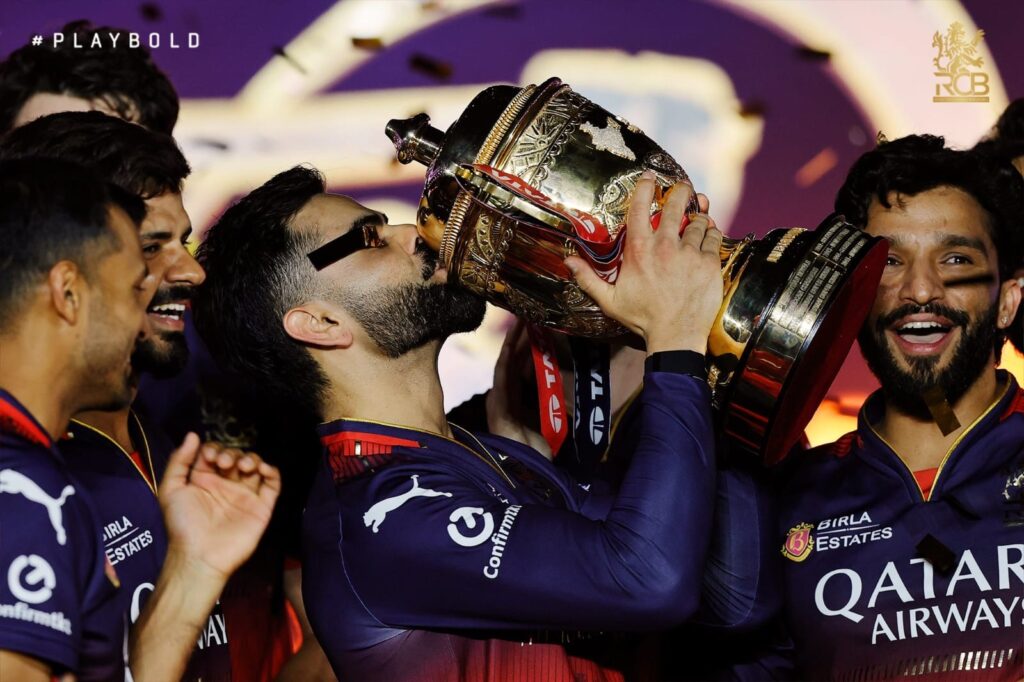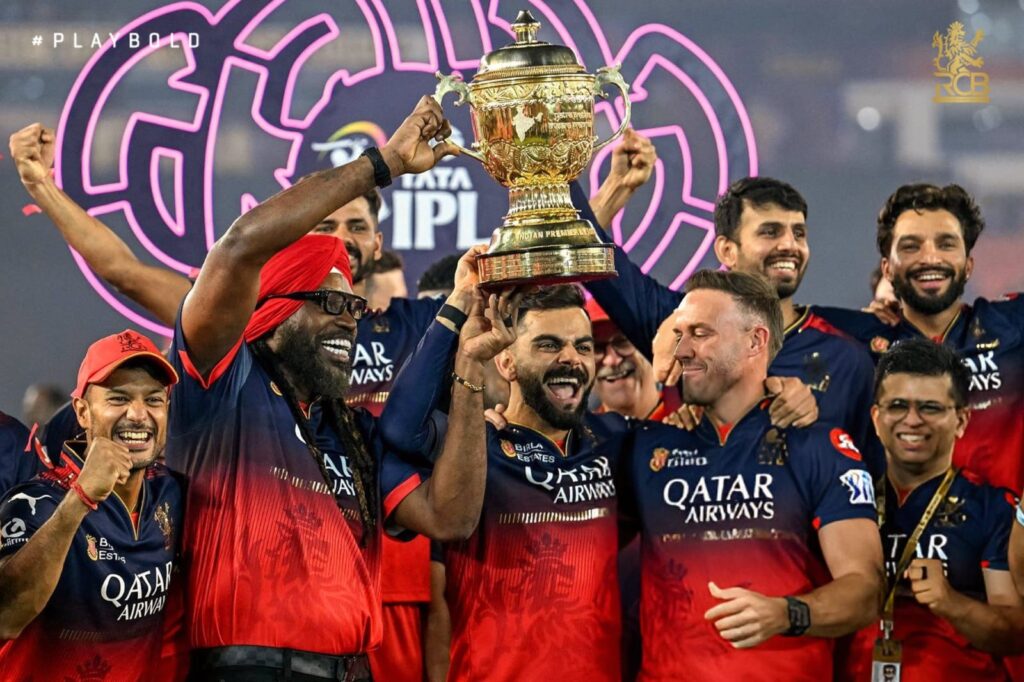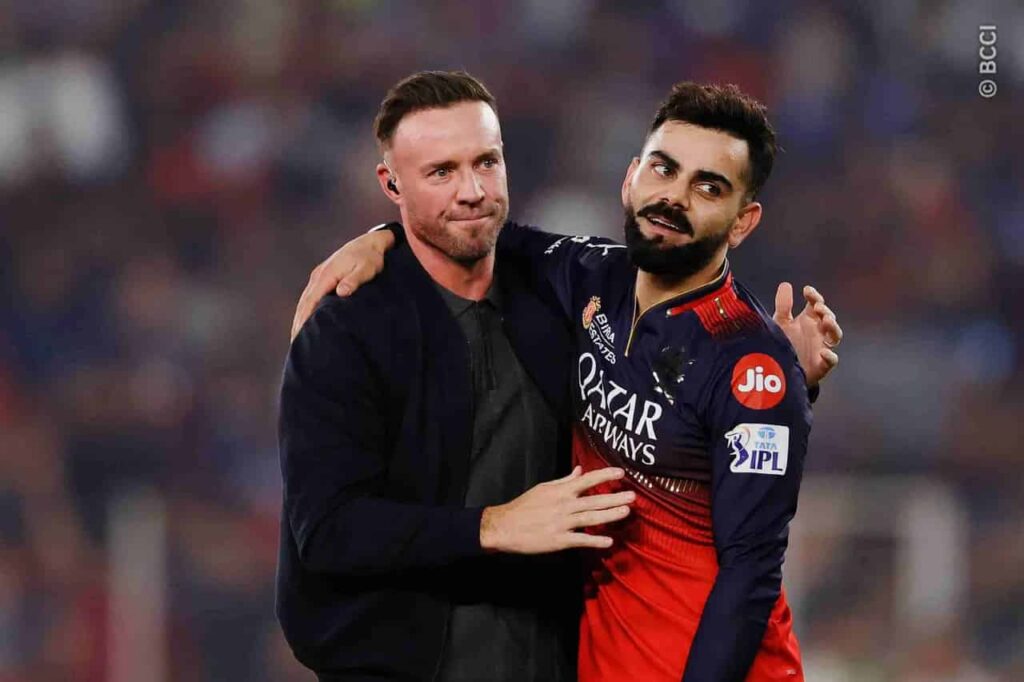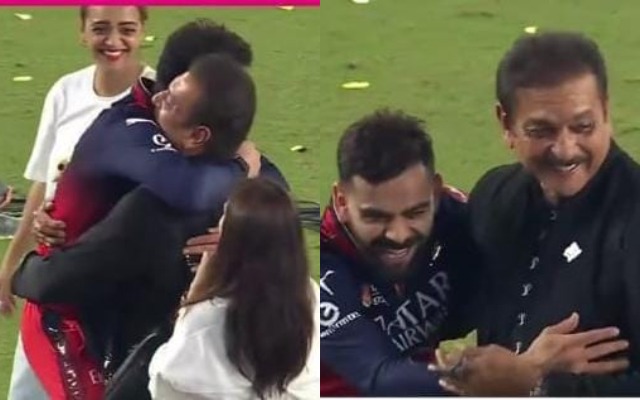
The tears came even before the final ball was bowled. Once it became clear, two balls into Josh Hazlewood’s final over, that Punjab Kings could no longer wrench the trophy away, Virat Kohli covered his face. He was still ‘Cheeku’ when he started playing for the franchise, a teenager who’d go looking for pizza, burgers and peri-peri chicken at Sandton City with his mates in the build-up to his first IPL final in 2009. Now, 16 years later, he was the senior statesman playing his fourth final. Father of two, beard flecked with grey, he had indeed given his ‘youth, prime’ and 267 IPL matches to the franchise.
When he first took guard for Royal Challengers Bengaluru (RCB) a couple of months after leading India to Under-19 World Cup glory, there were no ties to the city to speak of. This evening, the city will come to a standstill largely because of him. Along the way, the trophy dreams of a fiercely loyal fan base had become inextricably linked to ‘winning it for Virat’. Loyalty begets devotion, and most RCB fans are well aware of the multitude of offers Kohli turned down in the decade and a half since he became a marquee name.
His teammates made a beeline for him after the last ball was bowled, even as he sank to his knees and sobbed with his head touching the turf. Afterwards, the best part of the celebrations was how Kohli refused to make it about himself. All through the final stages, he had kept glancing towards a nervous AB de Villiers watching from behind the boundary line. Chris Gayle too was in the arena.
Also Read: How RCB and their fans made IPL 2025 Final special in Ahmedabad

Unlike the USA basketball team at Barcelona 1992, RCB’s dream team never tasted title glory. But Kohli knew how hard they had tried. Gayle was considered a washed-up has-been when RCB drafted him in as an injury replacement for Dirk Nannes in 2011. By the time he left Bengaluru, after seven seasons and 85 games, he was Universe Boss.
De Villiers was part of the best Test side in the world – three consecutive series wins in Australia – at a time when the World Test Championship didn’t exist. He never made it past a semi-final in either the 50- or 20-over formats. With RCB, he would lose two finals in an 11-year stint that saw him play 156 matches.

Kohli would not forget any of that. Just as Sachin Tendulkar name-checked Sourav Ganguly, Rahul Dravid, VVS Laxman and Anil Kumble – who had all missed out – in the aftermath of India’s World Cup win in 2011, Kohli too was insistent on sharing the spotlight with his one-time brothers in arms.
He was also fulsome in his praise of his current teammates, highlighting Rajat Patidar’s captaincy, Krunal Pandya’s contribution and even teasing Phil Salt, his opening partner, about going back to change nappies.
But for someone so wrongly labelled as arrogant and standoffish, the moment of the night was when he crossed paths with Ravi Shastri, India’s coach for much of Kohli’s tenure as captain. An ICC trophy may have eluded them, but it was their combination that made India the best Test side in the world, one that won on back-to-back tours of Australia.
As Shastri came into view, Kohli jumped into his arms like a child reunited with a parent after months apart. It was a moment that gave wonderful insight into what goes into the making of a champion team. It isn’t all about tactics, drills, diets and execution. It’s also about being human and sharing such bonds. De Villiers and Gayle – even Shastri – may never have won the trophy, but it was so apparent from Kohli’s body language that he felt it belonged to them as much as it did to him.
You can’t fake such feelings. “Friendships born on the field of athletic strife are the real gold of competition,” said Jesse Owens, hero of the Berlin Olympics in 1936. “Awards become corroded, friends gather no dust.”
Follow RevSportz For More Sports Related News




